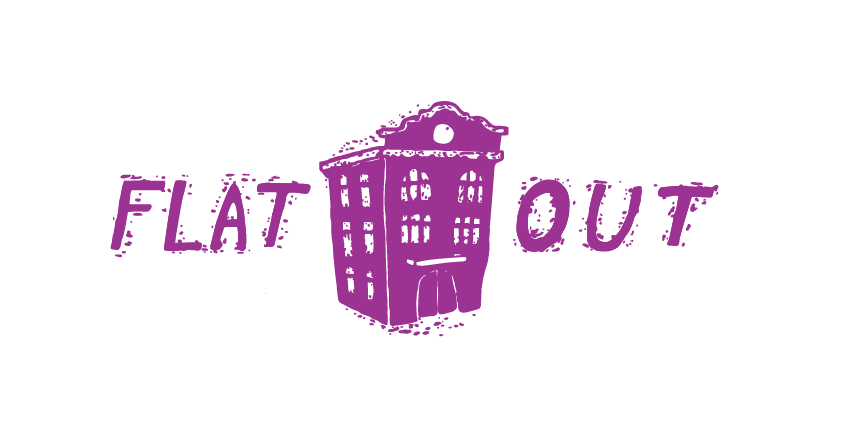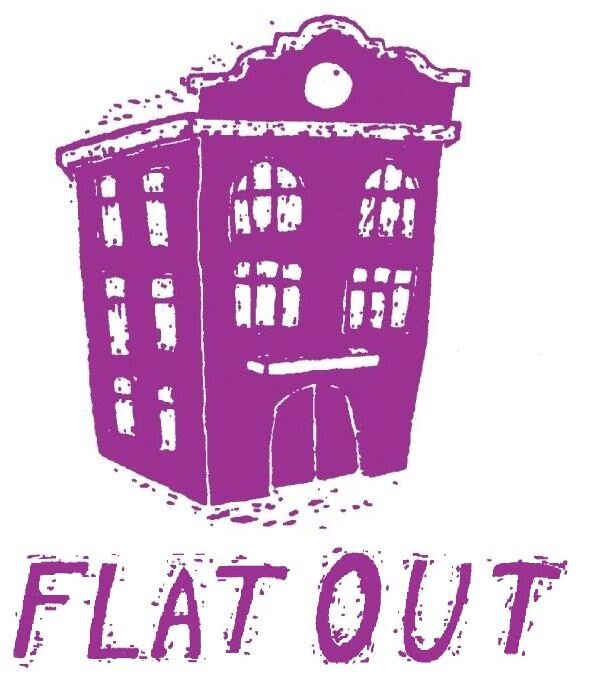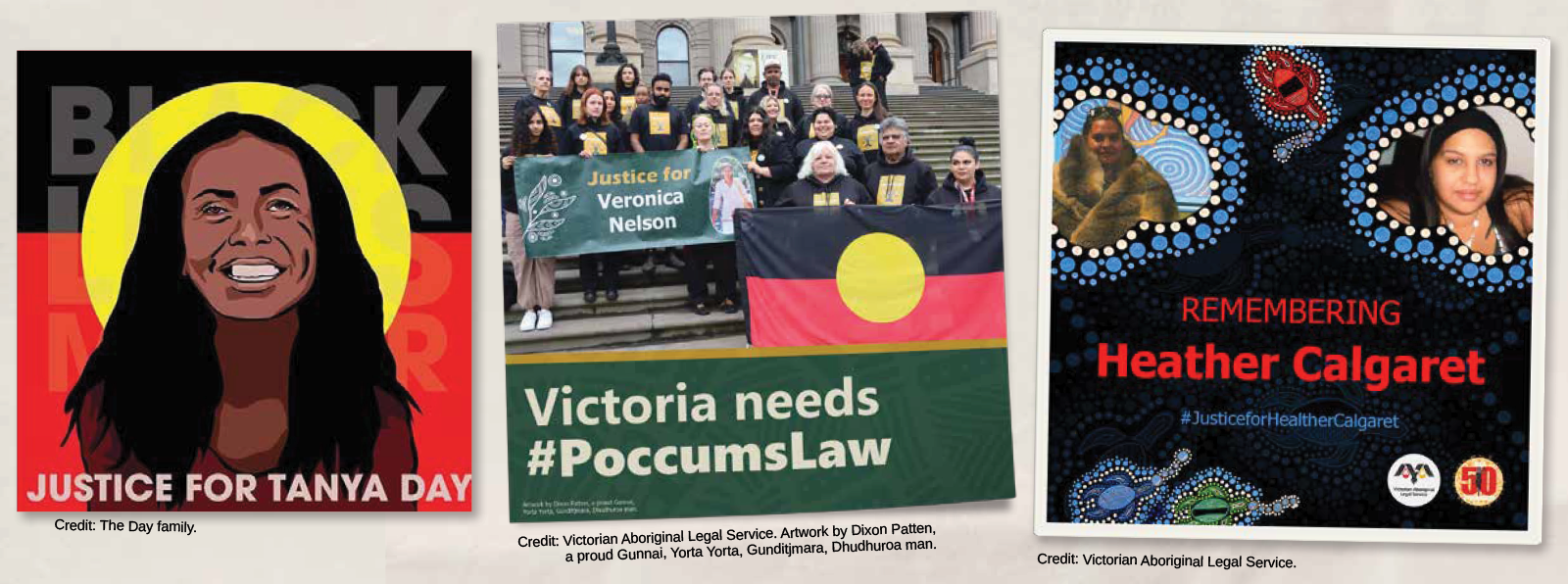Fund Housing and Support, Not Prisons
Looking Back and Looking Forward
This report by Sheena Colquhoun, Chair, and Karen Fletcher, Executive Officer on behalf of the Board and staff, covers two flat out years, 2022-23 and 2023-24. It is taken from Flat Out’s Annual Report 2022–2024.
At the end of 2023, we gathered for a strategic planning retreat at Camp Eureka on Wurundjeri country, to reflect on our 35-year history and strengthen our connections with our proud activist origins. Amanda George, founding member who remains on the Flat Out Board today, told us that Flat Out had 2 phones in our first office: one for women seeking support and the other for activist organising.
We recommitted to maintain that crucial connection between Flat Out’s everyday practical support for women, trans and gender diverse people, and active campaigning for the replacement of incarceration with community connection and care.
Numbers of women in prison
In March 2019, the number of women in Victorian prisons peaked at 611, with serious overcrowding and plans afoot to build an additional women’s prison in regional Victoria. We are relieved to report that the number of women in Victorian prisons is now declining, against national and international trends. On 31 October 2024, there were a total of 288 women in prison in Victoria, 32 (11 per cent) of whom were Aboriginal women.
These are just ‘snapshot’ numbers for June 30 each year. They don’t reflect the much larger numbers of women who churn through prison over the course of a year. Nor do they reflect the corrosive effect that even the shortest period spent inside has on each woman, trans and gender diverse person.
At the height of the spike in women’s imprisonment in Victoria in 2018–19, 1819 women – 316 of whom were Aboriginal women – were released. In 2022–23, 1105 women were released, including 178 Aboriginal women.
As you can see from the graph above, the most rapid growth was in unsentenced women imprisoned on remand, i.e. arrested, refused bail and awaiting court. A significant contributing factor was a series of ‘crackdowns’ on bail by the Victorian Government from 2014 in response to individual serious violent offences by men on bail who had not been adequately supervised by police.
Bail law reform
Bail laws were scrutinised at a coronial inquest into the 2020 death of Veronica Nelson, a 37-year-old Gunditjmara, Dja Dja Wurrung, Wiradjuri and Yorta Yorta woman remanded at the Dame Phyllis Frost Centre (DPFC). On 30 January 2023, the Coroner found that the changes to the bail laws that contributed to her death:
had a discriminatory impact on First Nations people
were causing ‘grossly disproportionate rates’ of imprisonment of Aboriginal women on remand
were a ‘complete, unmitigated disaster’ and needed serious reform.
Since Veronica’s death, her family and community has campaigned tirelessly for Poccum’s Law, a suite of changes to bail laws bearing Veronica’s family nickname. This campaign has been supported by the Victorian Aboriginal Legal Service and the Dhadjowa Foundation, leading a coalition of community and legal organisations, of which Flat Out is proud to be a part.
In October 2023, the Victorian Parliament passed some changes to bail laws in response to the campaign, although not Poccum’s Law in full, which remains unfinished business and an ongoing campaign. This was strongly opposed by the Victorian Police Association and many mainstream media outlets.
Impact of community campaigns
In November 2023, the offence of public drunkenness was abolished in Victoria. This followed a staunch campaign led by the family of Yorta Yorta woman Tanya Day, who died at Castlemaine police station in December 2017 following her arrest for being drunk in a public place after falling asleep on a V/Line train.
Aunty Tanya’s and Veronica’s shocking deaths and inquests; the heroic efforts of their grieving families and communities; the 2023 reforms to bail and public drunkenness laws, and COVID impacts (reduced arrests, clogged courts and reduced sentences, including via Emergency Management Day sentence credits, due to extreme COVID risk in prisons) have all contributed to the shrinking of the Victorian prison population over the last five years.
But although prison numbers, overall, are declining, the imprisonment rate of First Nations people in Victoria remains stubbornly high. The general imprisonment rate in the state in 2023 was 120.9 per 100,000 people but the rate for Aboriginal and Torres Strait Islander people was 1898.2 per 100,000.
The inquests into the deaths of both Auntie Tanya Day and Veronica Nelson heard clear evidence that structural racism contributed to their arrest, incarceration and appalling treatment in custody.
Coronial Inquest into the death of Heather Calgaret
In 2024, Flat Out gave expert evidence in the inquest into the death of Yamatji, Noongar, Wongi and Pitjantjatjara woman Heather Calgaret at Dame Phyllis Frost Centre (DPFC) in November 2021. Heather’s health was fatally impacted when her newborn baby was removed by Child Protection within days of giving birth while she was incarcerated. She received inadequate health and medical care for the extreme psychological and physical distress she suffered when her baby was taken. Although Heather’s sentence in the Koori Court was designed to enable her child to be returned to her, that sentence was frustrated by bureaucratic delay and mismanagement. A too common story.
Flat Out is currently working with our allies and collaborators to address the critical issues highlighted by Heather’s death: medical neglect, child removal and frustration of parole recommendations by lack of housing and bureaucratic bungling.
The mother and baby unit at DPFC has hardly operated in recent years and newborns are routinely removed from their mothers, especially Aboriginal mothers, days after birth. Similarly, the so-called Aboriginal Healing Unit at DPFC has regularly been empty or disrupted. By contrast, the Gordon solitary confinement unit is constantly full, mainly with Aboriginal and trans women, women with psychosocial disabilities and women suffering acute distress due to trauma and violence.
Outside of prison, the ‘priority’ waiting list for social housing is currently at least 20 months with many folks lucky to get on the list at all. Post-release housing remains an impossible dream for most of the folks we support. They are forced to return to unsafe relationships, couch surfing, living in their cars or the street. Child Protection removes the children of homeless mothers rather than assisting them with housing. The cycle continues.
So, we’ve got big work ahead of us.
Campaigns for justice, led by the families of Tanya Day, Veronica Nelson and Heather Calgaret.
Systemic injustice
The roots of the Australian prison and child removal systems lie in the invasion, dispossession and colonisation of First Nations peoples. Only treaty and decolonisation will start to undo the harms to all of us.
We think the key is solidarity and collaboration, and particularly in support for a treaty with First Nations Peoples that addresses the dual incarceration and child removal crisis. We take hope from the truth telling of the many Aboriginal witnesses who gave evidence to the Yoorrook Justice Commission over the last two years about the racism and injustice in Victoria’s criminal-legal and child protection systems and pledge our support for implementation of the Commission’s recommendations for ‘First Peoples’ decision-making power, authority, control and resources through negotiation under the treaty process’.
Looking forward
In October 2024, we gathered again for a retreat at Commonground on Taungurung country to create a plan for our next 5 years. We’ll publish our full 2025-2030 Strategic Plan in the new year, but one thing that came up again and again was the need for a place to welcome people leaving prison. A place with a backyard, room for children to play, open access to computers and IT help for dealing with life admin – especially Cenno. A place to store useful things and for peer support, organising, banner painting, reading and writing, and making food and plans.
Flat Out strategic planning retreat, Oct 24.
We share that dream with Auntie Vickie Roach, Yuin elder, formerly incarcerated woman, staunch abolitionist and longtime mentor to generations of us at Flat Out. In recent years, Aunt has suffered serious health problems and is now in palliative care. Shamefully, Aunt is still waiting on the notorious Victorian Housing Register for social housing. We are fundraising to help pay Aunt’s exorbitant private rent and healthcare costs.
There is an extract of Auntie Vickie’s 2022 evidence to the Yoorrook Justice Commission in the pages following this report. Aunt’s experiences of intergenerational child removal, abuse in state care, poverty, homelessness, family violence, addiction and the associated stigma and medical neglect, criminalisation and imprisonment – both as a child and an adult – remain this country’s deep and unaddressed shame.
Freedom is a place
As you will see from this report, these are the issues we continue to struggle with in our work at Flat Out. If anything, things are worse since Auntie Vickie was in DPFC, with large numbers of children and adults imprisoned following wilfully ignorant and misleading ‘law and order’ election campaigns by opportunist politicians, media, police and prison officer associations.
Flat Out plays one small part in the ‘one million experiments’ that make up the global abolitionist struggle. We recognise that without understanding and resisting the deep roots of colonisation, and its expansive violence in the form of police, prisons and punishments, we may end up doing more harm than good. We recognise that to keep moving, we must keep the 2 Flat Out phones plugged in, one for today and one for tomorrow.
Auntie wants to establish Auntie Vickie’s Place of Freedom, a place where young First Nations and other women and their kids can get support and advice from elders and the practical things they need to live well and safely. Flat Out plans to help make Aunt’s dream a reality in coming years. Watch this space – as abolitionist geographer Ruth Wilson Gilmore teaches, freedom is a place.
This report was written by Sheena Colquhoun, Chair, and Karen Fletcher, Executive Officer on behalf of the Board and staff, for Flat Out’s Annual Report 2022–2024.




